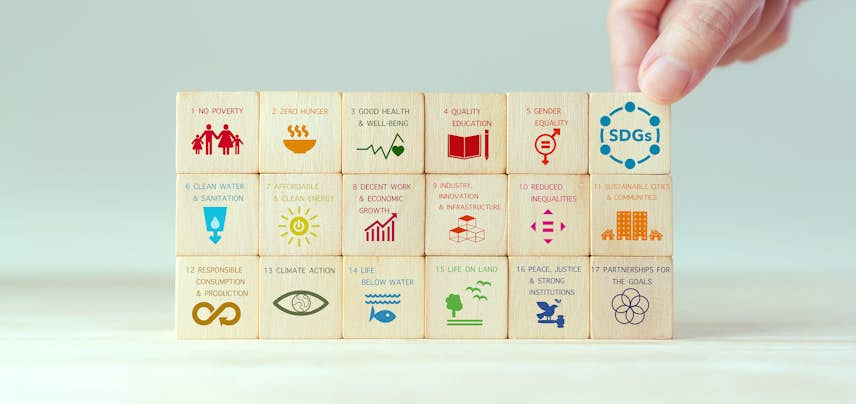COOPERATION WITH THE PRIVATE SECTOR
It is with this in mind that the formation of a closer relationship between Luxembourg’s Development Cooperation and private sector operators continues to be encouraged, with the specific aim of identifying innovative solutions and making them available to help achieve development objectives in developing countries. All the initiatives in this framework place a central focus on the responsible conduct of businesses in relation to human rights and compliance with environmental criteria, as well as the principle of untied aid.
In 2023 the Directorate for Development Cooperation and Humanitarian Affairs launched a new global project that includes three co-financing instruments, targeting companies at different stages of maturity, which offer solutions aimed at achieving the SDGs more quickly. The first instrument, the LuxAid Challenge Fund, targets new, innovative and high-impact companies that offer solutions to a specific development challenge identified in one of Luxembourg Development Cooperation’s partner countries. A first call for this instrument was launched at the end of 2023 simultaneously in Senegal, Mali and Burkina Faso, targeting innovative young companies in the fields of food security and distance learning.
The second instrument, the LuxAid Demonstration Fund, targets businesses in three pilot countries: Senegal, Rwanda and Kosovo. This instrument is aimed at more mature businesses and focuses on scaling up an innovative solution that has been tested on a smaller scale and whose impact has been proven. A first selection of three businesses took place in 2023, in Rwanda, in the fields of alternative protein production, land regeneration and agroforestry. Finally, under the Business Partnership Facility, an instrument which has existed since 2016 and which encourages partnerships between Luxembourg businesses and businesses in developing countries, there were two calls for projects in 2023 and eight projects were financed. The fields involved included carbon credits, connectivity, pharmaceutical logistics and media development.
It should be noted that business due diligence plays a central role in the financing of these projects; the outcomes of the interventions and the award of funds are conditional on specific commitments relating to respect for human rights and environmental criteria. In that context, dialogue continued in 2023 with the Luxembourg national contact point for the OECD Guidelines for Multinational Enterprises, which also supported LuxDev to implement an ambitious approach in terms of due diligence in these new instruments. In general, the Directorate for Development Cooperation and Humanitarian Affairs has continued to follow the work of the “Enterprises and Human Rights” working group, responsible for implementing and monitoring the second national action plan on business and human rights (2nd NAP).
In addition, on 1 June 2023 Luxembourg signed the Joint Declaration on Living Income and Living Wages, together with the Netherlands, Germany and Belgium. The declaration proposes a number of specific actions such as dialogue between consumer and producer countries on adequate wages and minimum incomes, support for the International Labour Organization (ILO) to develop international definitions and indicators, and support for social dialogue in developing countries.
Multilaterally, in 2023 Luxembourg’s Development Cooperation has continued to support the Enhanced Integrated Framework (EIF), a multi-donor programme in the field of assistance for trade, directly linked to the World Trade Organization (WTO). The programme aims to provide specific support to the least developed countries to enable them to play a more active role in the global trade system.
